Photos Of Recycled Cooking Oil Put Chinese Food Safety In Question
National media in China have released shocking photos collected from investigations into black-market cooking oil produced from garbage, food scraps, and even dead animals.
China has a large and pervasive underground market for purchasing, delivering, and manufacturing illegal cooking oil. Digou oil -- variously translated as sewage oil, gutter oil, or ditch oil -- is commonly extracted through boiling and refining garbage or leftover foods. Oils released through this rudimentary processing are then skimmed off and collected.
It is later sold to restaurant and hotel kitchens or street vendors for meal preparation, often through third-party retailers.
Most people who use digou oil turn to it to cut costs, buying it from illegal sources.
The disturbing phenomenon has been a leading story in China recently, making headlines even in a country where scandals related to food safety have become commonplace.
Chinese citizens are deeply concerned. Their country has been continuously producing embarrassing stories related to poor quality and criminal negligence in food production.
In an operation on Tuesday, the Chinese Public Security Bureau, or state police, shut down 13 black-market operations across six provinces, arresting more than 100 people. More than 3,200 tons of the rancid oil were confiscated and destroyed.
Animal Carcasses
However, the recent event marked a completely new development in the digou oil story.
Bo Xuejun, a public order vice-brigade chief for the Jinhua municipal police in Zhejiang province, told Chinese investigative reporters that some operations were producing oil by boiling spoilt beef, pork, and lamb collected from rotten animal carcasses, skins, and internal organs -- collected and bought from local slaughterhouses.
Hua Jingfeng, a vice-bureau chief of the Chinese Ministry of Public Security, told Chinese reporters that the problem of digou oil stems from a lack of development in China's treatment of garbage and waste.
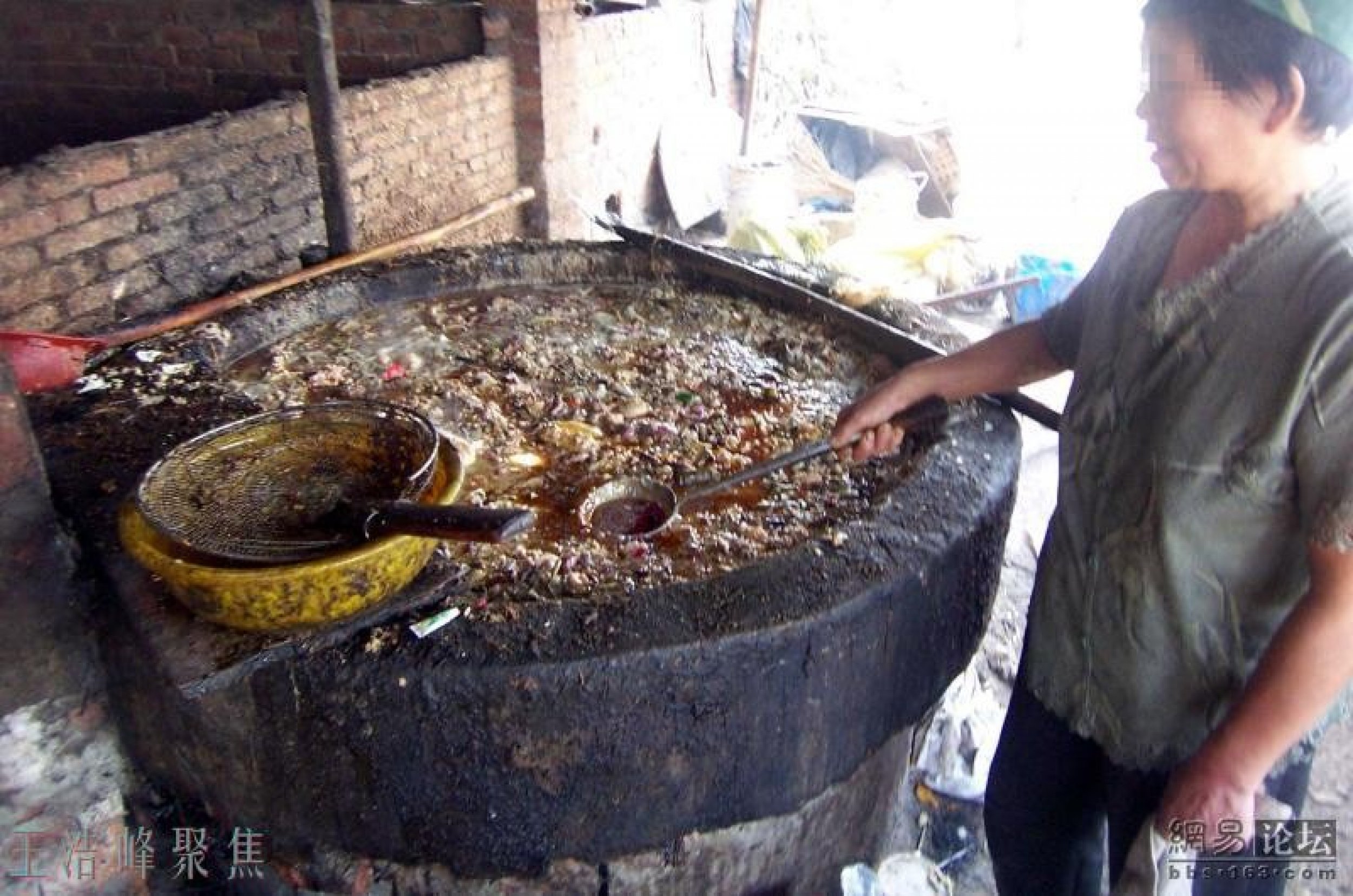
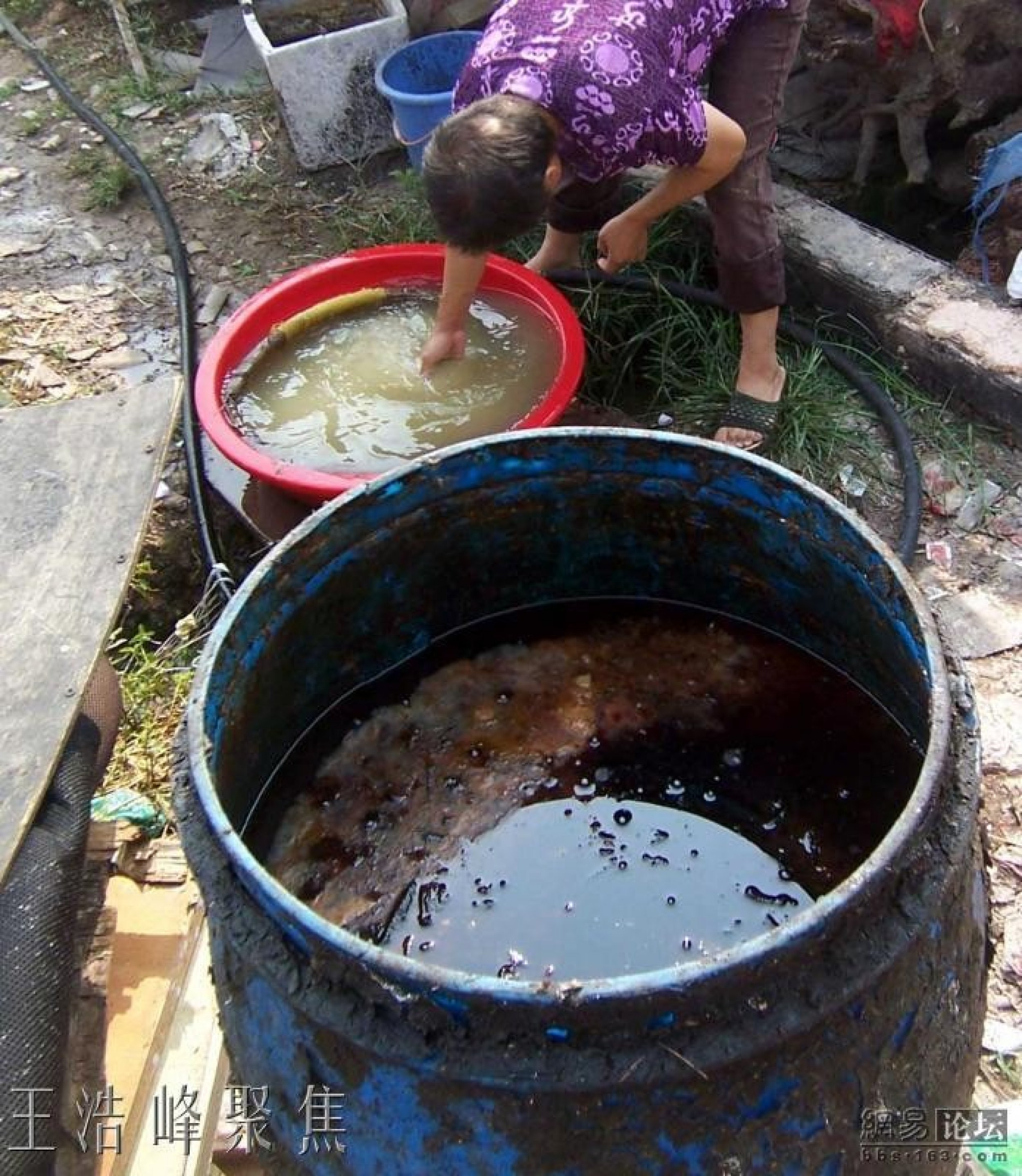
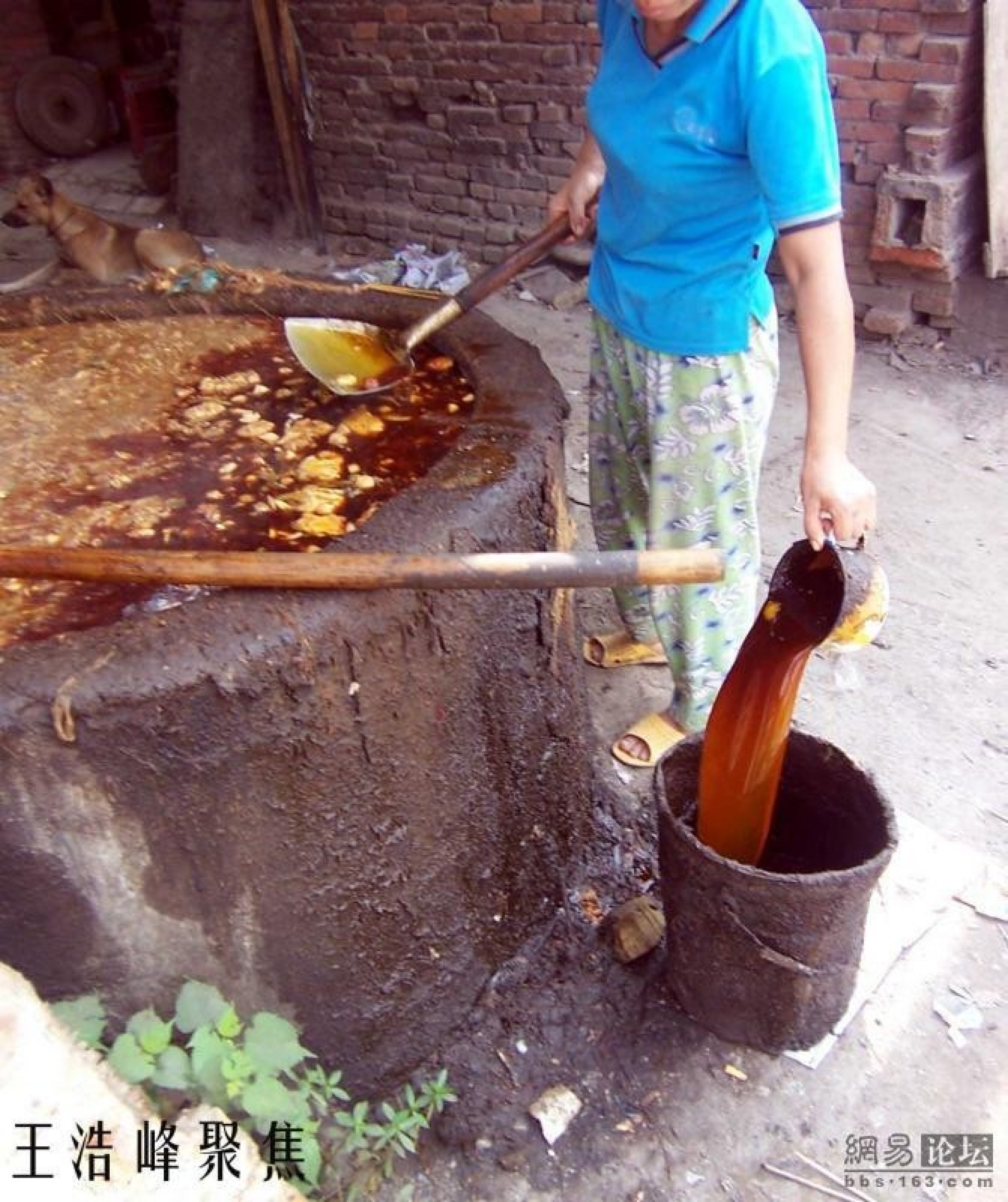

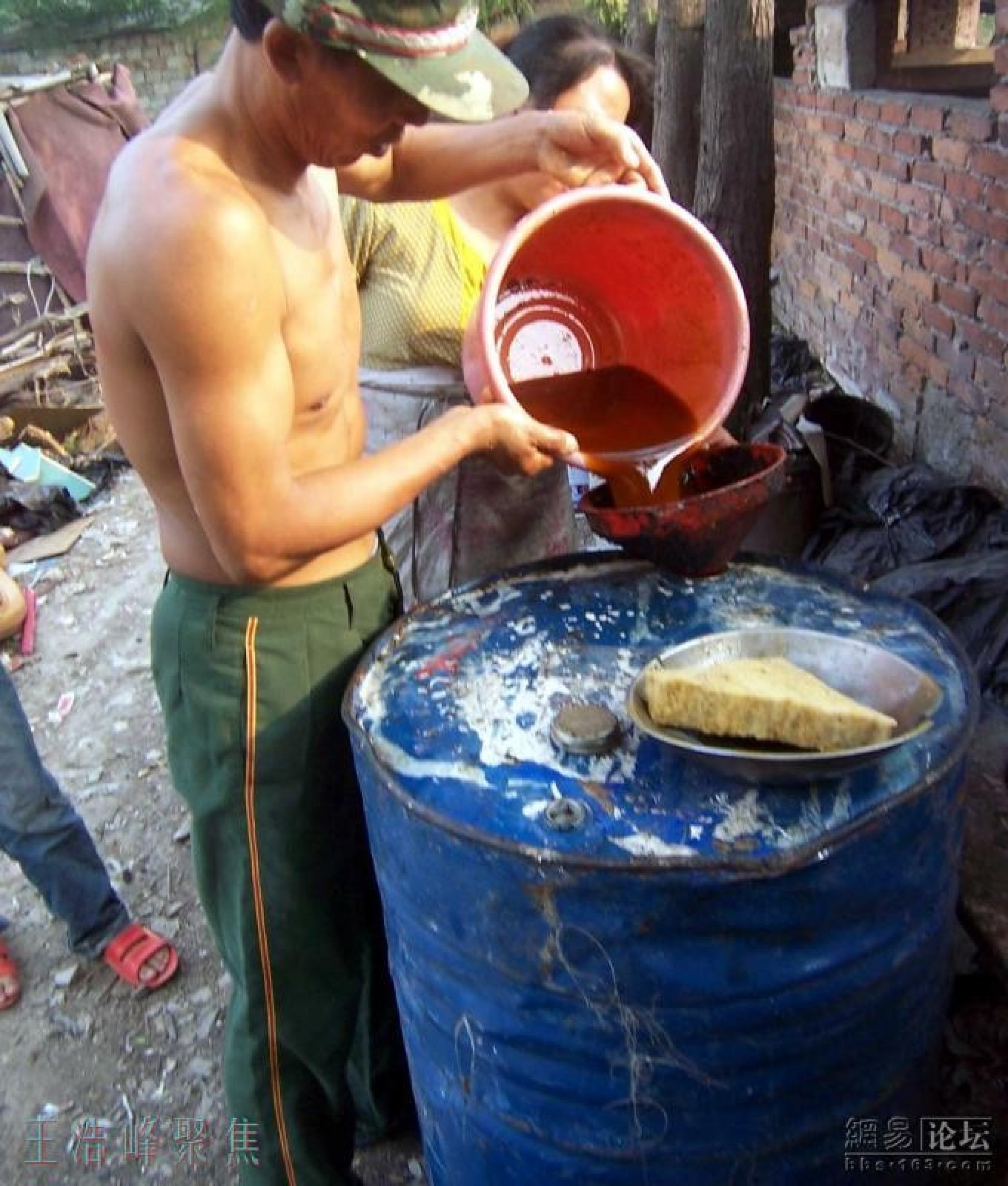

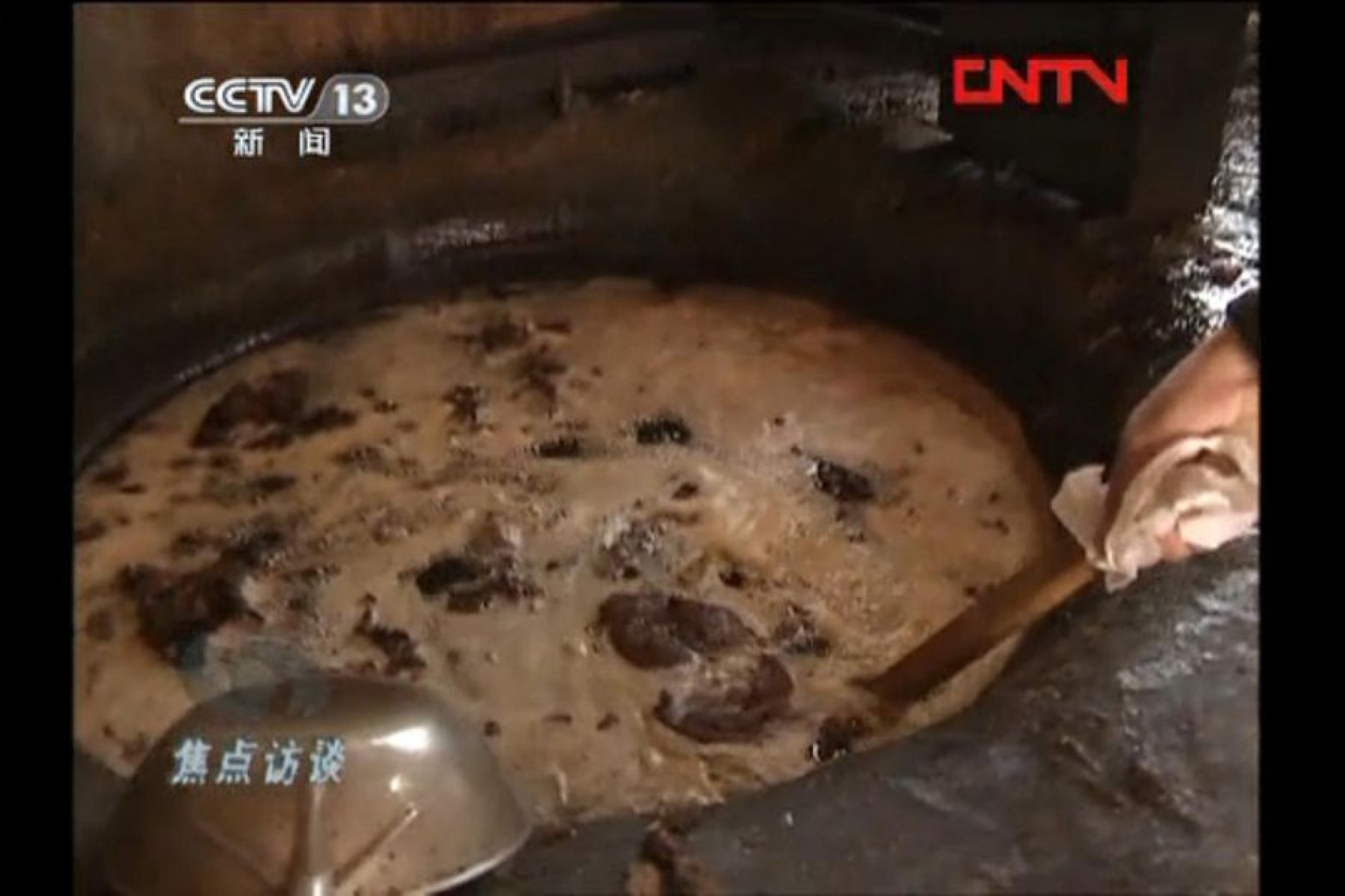

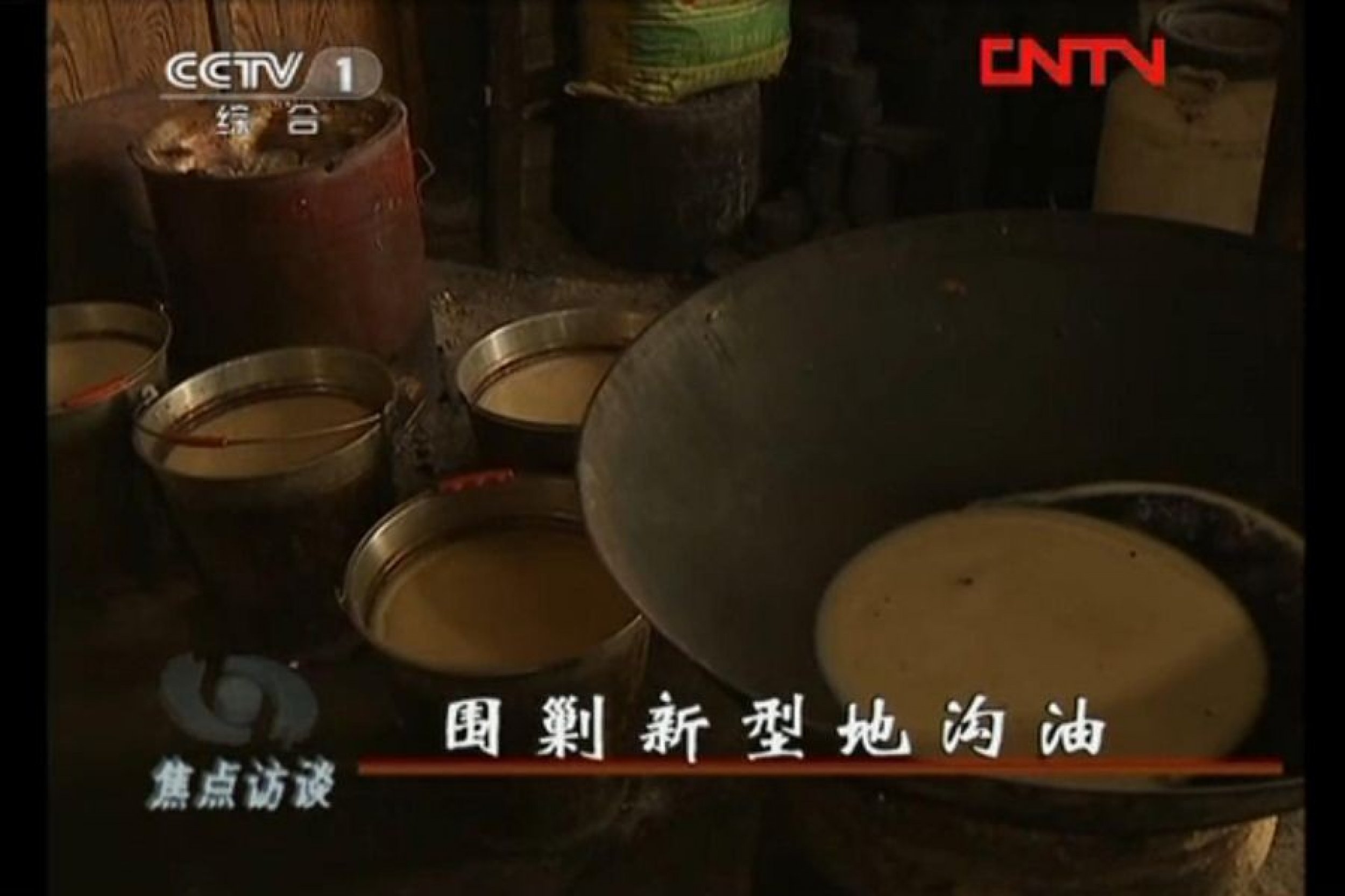
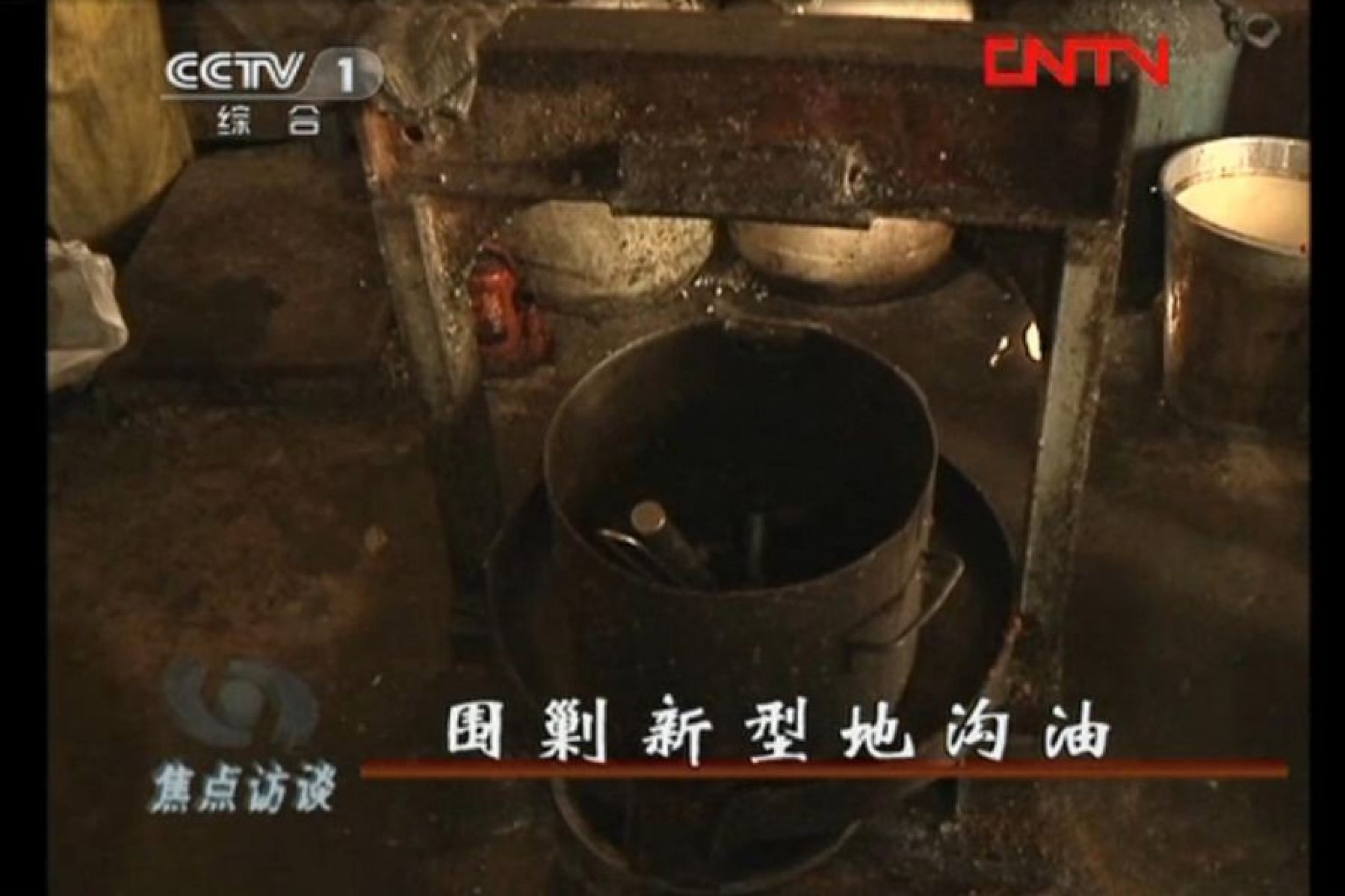
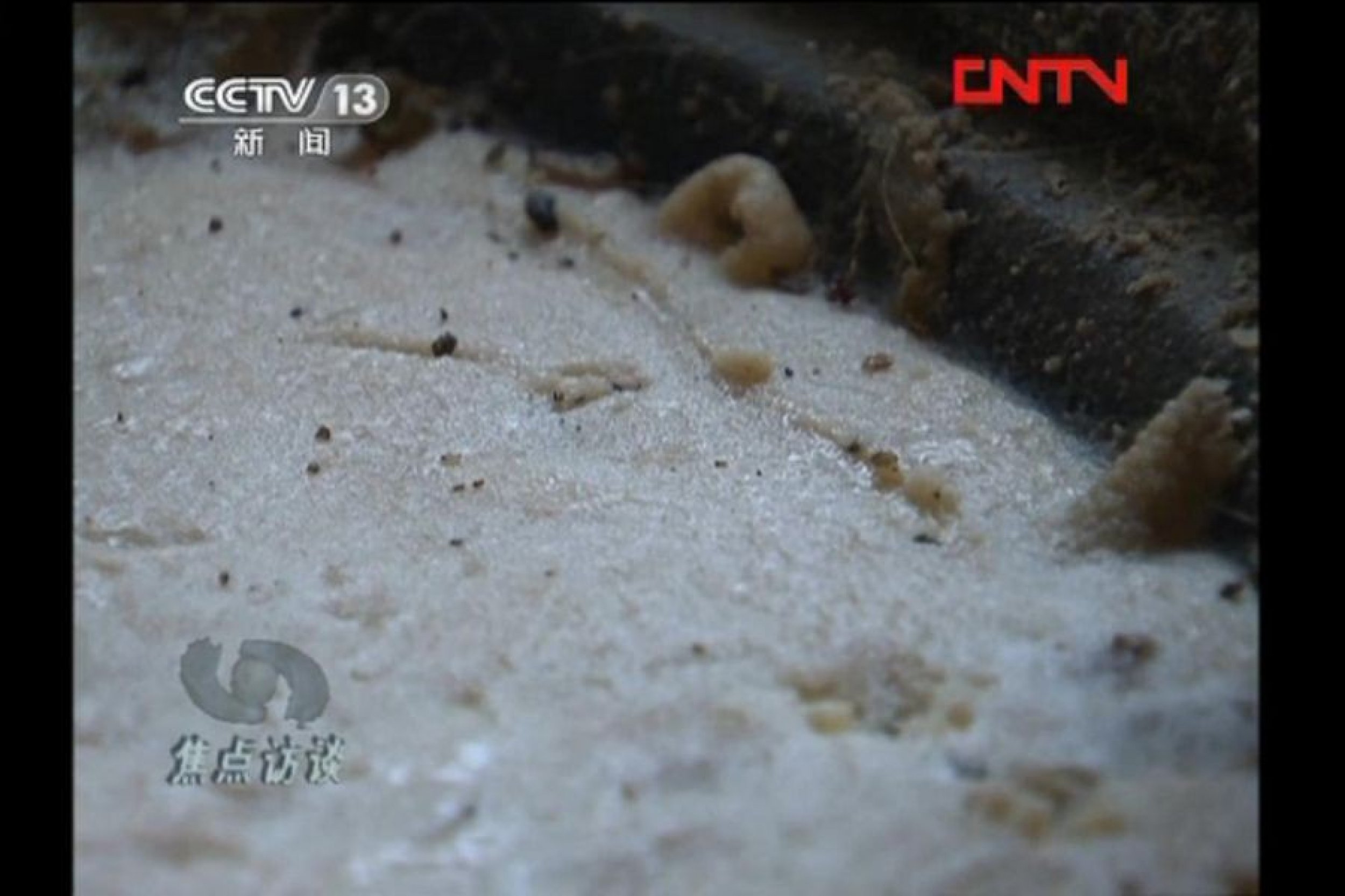
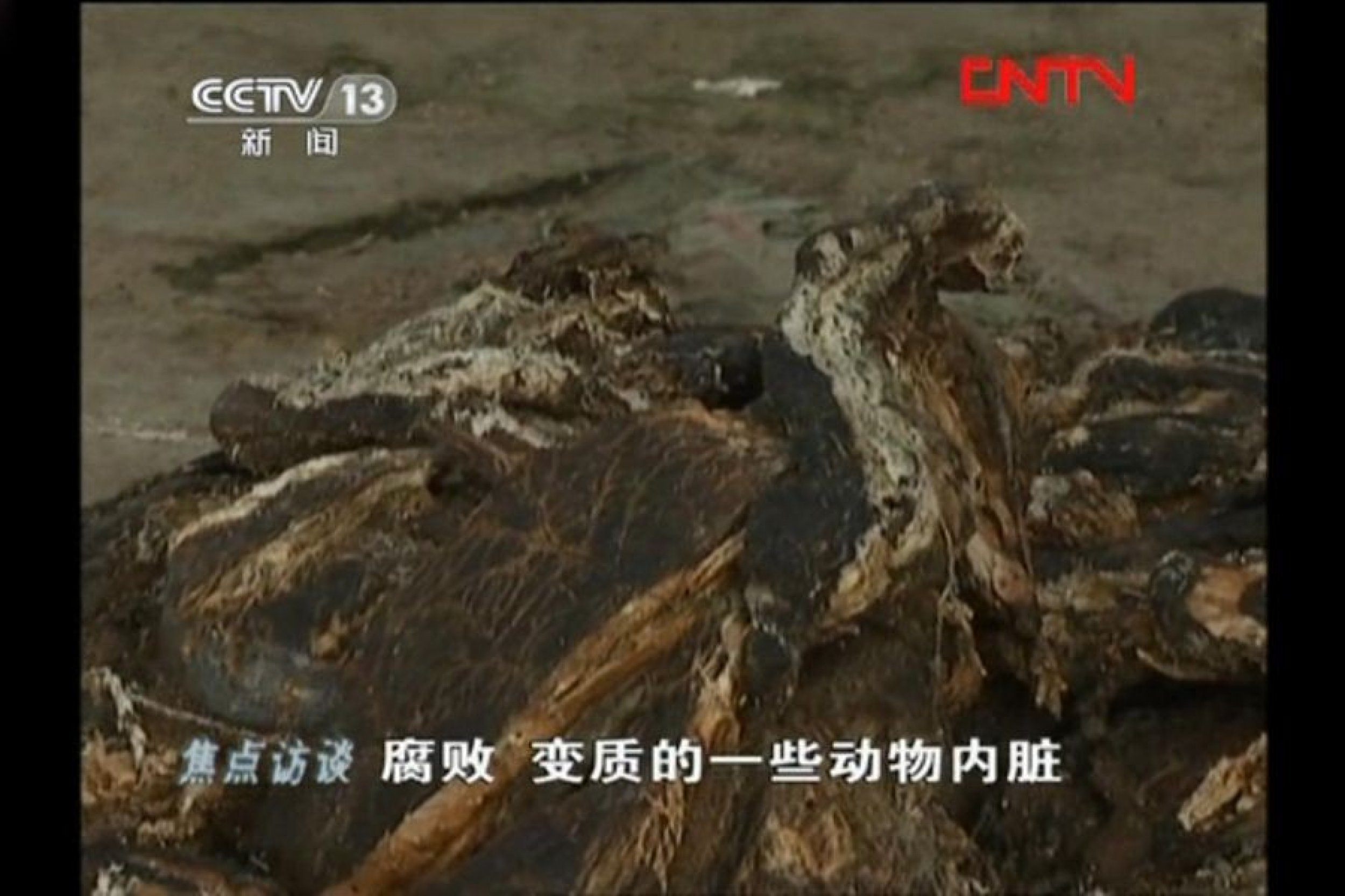
© Copyright IBTimes 2024. All rights reserved.





















